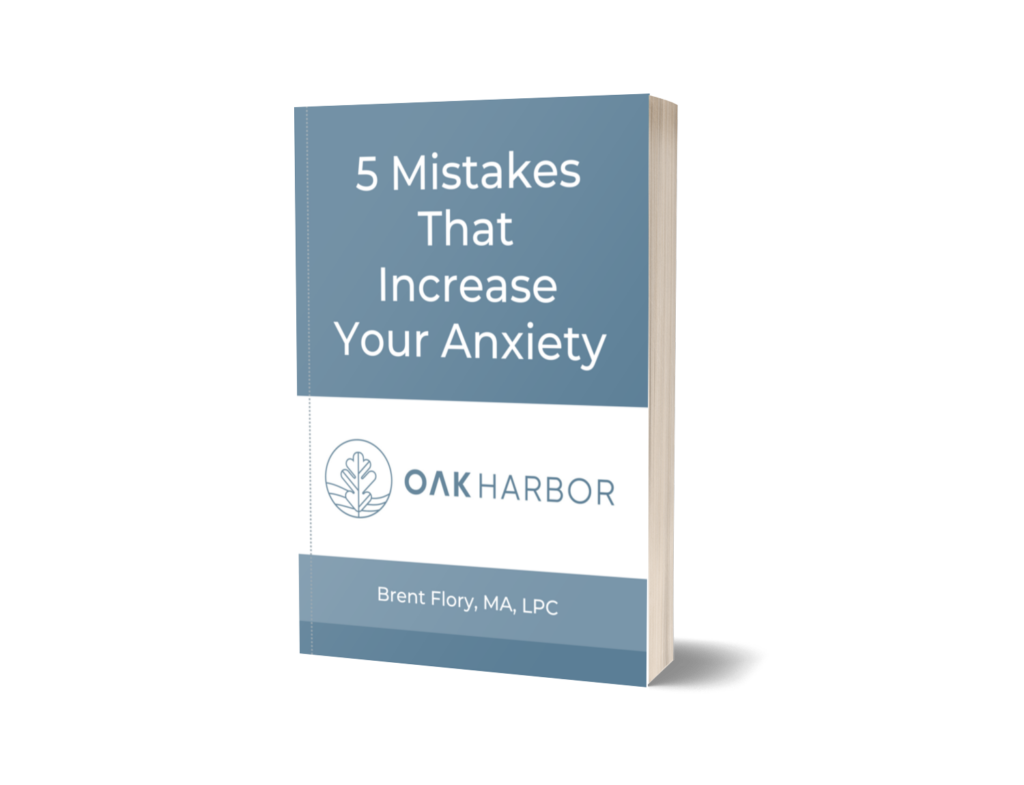The fallout of a loved one battling substance use dependency will affect every area of your life. How do you cope with the situation and all the painful emotions it evokes? How do you begin to move forward? This blog post is based off a talk I gave to a support group for family members of people who are battling substance use dependency.
Our Family’s Greatest Tragedy
My career as a counselor began in Columbus, Ohio at CompDrug, where I worked with people who struggled with substance use dependency. About a year and a half later, my wife Amy and I felt led to help friends of ours start a church in Vancouver, British Columbia.
We moved to Canada in 2015 with our daughter, Claire. Less than a year after moving to Canada, we had our second child, Caleb. Then a couple years later, we got pregnant again. Halfway through the pregnancy, we found out that our child had severe spina bifida and brain malformation. The combination of the two was a death sentence for him. Our dear sweet little boy, Benjamin, lived for 40 days and then passed away.
Our family was absolutely crushed by our loss. We tried to make it work in Canada after Benji’s death, but we realized about six months later that we needed to leave. In July of 2019 we moved back to the US with our two living children to try to heal.
Hitting a New Low Point
We landed in northeast Ohio in early August of 2019, in my wife’s small hometown Sugarcreek. After we got back to Ohio, it was like a whole new stage of grief just overwhelmed me. I thought I was in no place to practice as a counselor, so I ended up taking a job working in customer service for a local company.
Amy was working as a nurse for a local hospital, and we were able to buy a home. We moved into our home in January of 2020. Soon after the COVID shutdown happened in March, and I got laid off. I’d never been laid off from any job before.
I was furious. The company had told me that they saw me as a future leader, yet they let me go. I got angry at Amy for convincing me that we should move to Sugarcreek. I was unemployed, I was isolated from my long-term friends and network in Columbus, and I didn’t know what to do. The unfairness of it all was overwhelming to me, so I started to check out emotionally.
Here’s the problem. You could argue that my anger towards with my previous employer, my wife, our situation, and the loss of our child was justified. But would staying angry, blaming others, and checking out be helpful in figuring out our situation? Would making those choices help us move forward as a family?
Own Your Story
Let me pause my story and turn to you. I’m far from being the only person who has experienced profound pain. I’m not the only one who has suffered loss. Nor am I the only one who has been angry about the unfairness of life.
It is heartbreaking to watch a loved one spiral down into substance use dependency. To realize that the person you love will never be the same.
Do you find yourself in a similar place to where I was? Angry, feeling hopeless, upset about the unfairness of it all? Confused about how your life got here? How do you start moving forward?
What I did, and what I want to encourage you all to do, is what I call owning your story.
What Does It Mean to Own Your Story?
There are three parts to owning your story:
1. Acknowledge your reality.
2. Take responsibility for what you can change about your reality.
3. Cope with what you cannot change.
1. Acknowledge your reality.
First, to own your story, you must acknowledge your reality. To acknowledge or admit what your reality is sounds simple, but it can be painful. Nonetheless, acknowledging the truth of our situation is vital. We cannot change what we don’t know about or won’t admit.
Reality is not your friend, but do not make it your enemy.
There’s a saying but I’ve come across in the last couple of years that really resonates with me. I’m not sure where it originates but it goes like this: reality is not your friend, but do not make it your enemy.
The harshness of a painful reality is not our friend. It doesn’t comfort us. It doesn’t bring us peace. However, if we don’t acknowledge our reality for what it is, no matter how painful, we run the risk of making it worse. We can only address what we acknowledge.
What is your current reality? Having a loved one struggle with substance use dependency is heartbreaking. But are there other realities that you need to acknowledge?
-
Do you need to acknowledge the reality that you can’t fix their lives?
-
Do you need to acknowledge the reality that they must choose and pursue healing themselves?
-
Do you need to acknowledge the reality that thinking you have to save them is breaking your heart?
-
Do you need to acknowledge the reality that their battle with substance use dependency is not your fault?
-
Do you need to acknowledge the reality that loving them well means setting healthy boundaries with them?
-
Do you need to acknowledge the reality that the only person whose health you have any control over is your own?
-
Do you need to acknowledge the reality that they and your life will never be the same?
I had to acknowledge the reality of losing my son. I had to acknowledge how that loss affected myself and my family. Losing Benji changed us forever. It was only after acknowledging that reality could I take steps to care for myself and my family effectively.
2. Take responsibility for what you can change about your reality.
When I say, “take responsibility for what you can change about your reality,” I don’t mean blame yourself. There is a massive difference between taking responsibility for what you can change about your reality and taking responsibility for your reality.
Unfortunately, I imagine that many of you struggle with blaming yourselves. You think that somehow you are responsible for your loved one’s battle with substance use dependency. Many of you struggle with shame. You need to hear this: You didn’t force your loved one into substance use dependency, no matter what your mind tells you. No matter how often it tells you that it’s your fault. No matter how loudly your mind screams at you.
Instead, I am saying that you need to take responsibility for what you can change about your reality. Here’s how:
A. Own that you must take a stand.
What does it mean to take a stand? It means behaving like the person you want to be and want to become even when the odds are against you. It is not allowing your negative thoughts, feelings, or your current situation to dictate your actions.
What do you want to stand for in the difficult times you and your family face?
You cannot control the outcome of your loved one’s struggle with substance use dependency. Admitting a lack of control goes against our nature. We want to feel like we have some semblance of control, even though we do not.
But you can stand for something. You can get in touch with your values and honor them even in the face of difficult times. The Ukrainian people are a model of courage, and you can be too.
You can value courage and set healthy boundaries to care for yourself and others in your family. You can make it clear with your loved one battling substance use dependency what is okay and what is not okay and stick with those boundaries.
You can stand for self-care, choosing to eat healthy, exercise and get some sleep even with all the stress that you face.
You can stand for joy and enjoy your relationships with other family members or friends. Yes, you have a family member chained down by substance dependency. But that doesn’t mean that the rest of you should feel guilty for experiencing any moments of joy. I would argue that the pain and suffering you are experiencing means that you need to find small moments of joy all the more.
B. Own that messiness is okay.
As you seek to change what you can, it is going to be messy. For example, setting up boundaries with your loved one battling substance dependency is going to lead to conflict. No matter how you present it to them.
If you have not been caring for your body, then choosing to exercise again is going to be rough. Your mind will mock you and tell you that you don’t deserve health or that you shouldn’t spend time on yourself. Your body will flat out hurt, especially at first.
Taking responsibility for what you can change to better your life is messy. And that’s okay.
3. Cope with what you cannot change.
How do you cope with what you cannot change?
A. Treat yourself kindly.
As I touched on before, I’m sure many of you struggle with shame and self-blame for your loved one’s battle with substance use dependency.
An antidote to shame is to practice treating yourself kindly. As I mention the idea, I’m sure many of your minds are saying that shouldn’t be available to you. That you don’t deserve it. I would say, let your mind chatter away and say what it is going to say. Practice being kind to yourself anyway.
B. Get support from a safe friend.
You need at least a few people in your life who are safe people. People who will listen and not judge you or your family. People who will encourage you. Working with a professional like me can be helpful. But in the long run you need the ongoing support of a friend or family member. Someone who is going to faithfully walk with you on this difficult journey.
Action Steps to Take Today
1. What part of your reality do you need to acknowledge? Spend 15 minutes writing or go on a walk to reflect on this.
2. What step can you take today to practice self-care and treating yourself kindly?
3. Who is a safe person in your life who will support you in taking these steps? Call them today.



